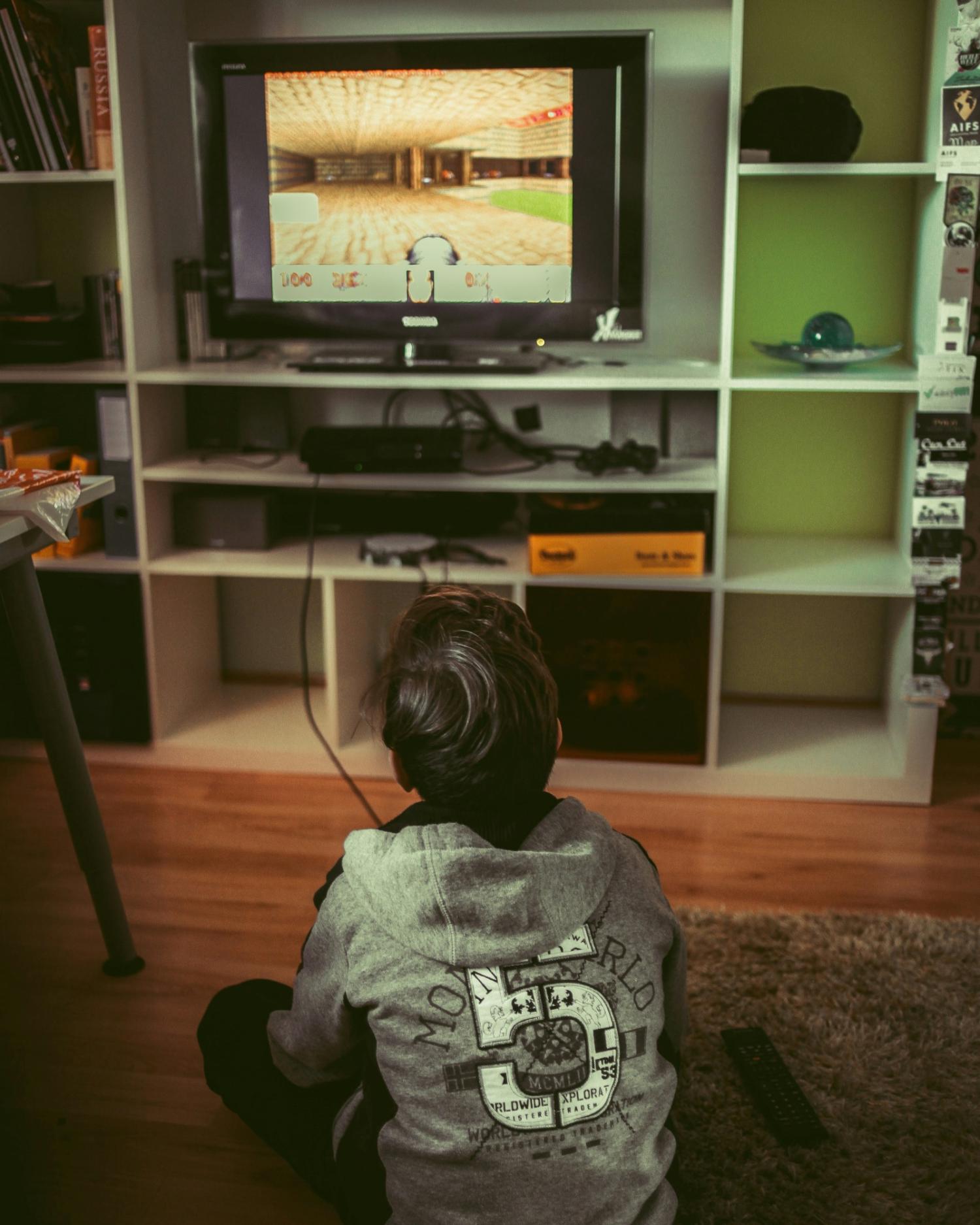Video games don’t rot your brain—they train it
CU Boulder scientists find that playing video games comes with small but significant cognitive benefits
Ever since video games began to gain widespread popularity, some have questioned how playing them consistently affects people, especially mentally. Like with TV, the internet, social media and AI, the tendency has been to assume negative effects. However, a number of studies have suggested that playing video games can help strengthen people’s cognitive abilities.
Despite similar research findings, many of the studies disagree on the size of this effect and to which areas of cognition it applies—perhaps, in part, because of the limitations inherent to their typically cross-sectional approach.
A team of University of Colorado Boulder scientists including Shandell Pahlen, Anqing Zheng, Robin P. Corley, Naomi P. Friedman, Sally J. Wadsworth and Chandra A. Reynolds, all members of CU Boulder’s team within the CATSLife project, aim to address these uncertainties with a longitudinal study on video games and cognitive health. CATSLife stands for Colorado Adoption/Twin Study of Lifespan behavioral development and cognitive aging.

Chandra Reynolds, a CU Boulder professor of psychology and neuroscience, and her research colleagues found small, positive cognitive benefits of playing video games.
“We can leverage the twins and siblings’ similarities and differences to understand aspects of behaviors and cognitive abilities,” Reynolds explains, a CU Boulder professor of psychology and neuroscience, “especially as they relate to how well people maintain their cognitive functioning, not only now, but eventually we hope to continue following them as they transition into midlife.”
Video games and cognitive health
Video games are an accessible way to engage one’s mind for several reasons. Like board games, video games do not require much in the way of physical ability, unlike sports and other such ways to exercise the mind. Additionally, video games are widely popular, with 2.7 billion gamers worldwide as of early 2025, according to Statista.
These traits suggest that video games could be used as a tool to support cognitive health, but this assertion raises some questions: What are the specific abilities that comprise generalized cognitive functioning, and how can scientists determine whether video games serve this purpose?
The study covered three important cognitive domains: processing speed, working memory and spatial reasoning. It included 1,241 individuals from CATSLife between 28 and 49 years old who had taken at least one of these tests. Some of the participants played video games and some did not, so the effects of playing video games were determined based on what video games they played. These games were categorized broadly into Action+, Puzzle+, and Other genres. The plus signs refer to the fact that the categories include genres that are not usually described with the base name, like life simulation games being included in Puzzle+ even though they aren’t puzzle games.
Reverse selection
One argument against prior studies suggesting that video games provide a cognitive benefit is the concept of reverse causation. In this case, reverse causation refers to certain people’s cognitive skills making them more likely to play video games, as opposed to playing video games causing an increase in cognitive skills.
Reverse causation is therefore part of the nature vs. nurture discourse, and as such, the point is not that engaging in an activity can’t improve people’s abilities, but that part of the correlation between activity and ability comes from those who already have above-average abilities choosing to engage in activities that take advantage of them. For example, a hypothetical study that compared Olympic runners with people who never run without accounting for reverse causation would overestimate the physical benefits of running, because a large part of the gap between the two groups is baked in: Most people can’t reach the level of Olympic athletes just by exercising.
This study factored in the participants’ baseline cognitive ability by looking at their adolescent IQ scores. “We’re fortunate that we had a longitudinal design,” Reynolds says, “and that we’ve assessed our participants multiple times over their earlier development into adolescence. Most studies of video games are cross sectional, and they don’t have indices of people’s cognitive performance at earlier ages.”
The researchers also considered several variables associated with performance on specific cognitive tasks. These included age, sex and educational attainment. The first two of these are especially important, because the genre of video games that people play varies within these demographics. Specifically, women and older adults are more likely to play Puzzle+ games, and men and younger people are more likely to play Action+ games.

CU Boulder researcher Chandra Reynolds and her colleagues found that spatial reasoning benefited most consistently from playing video games. (Photo: Unsplash)
“There are some sociodemographic differences in what kinds of games people are playing,” Reynolds says, “and we wanted to account for that to isolate the differences that might arise from the gameplay itself.”
Increased processing speed
Spatial reasoning benefited most consistently from playing video games, with a significant effect measured in all three tests before and after adjustment for adolescent IQ, although the effect was about half as large after adjustment. There is also evidence that processing speed performance could increase after playing video games, as the results of one test remained significant even after adjustment. Working memory was the only domain that did not show evidence of improvement due to video game play, with non-significant numbers before and after adjustment.
Reynolds says that unimproved working memory results could be a consequence of the test used and the fact that only one test was used for this ability, compared to the three tests used for both processing speed and spatial reasoning.
“We can’t say a whole lot about working memory from one test,” he says. “In the future, we want to extend to other measures that would get more specifically at attention, working memory and other aspects of executive functioning.”
When video game play was broken down by the broad genre of game, there were some negative correlations: people who played Action+ games scored worse on processing speed, and those who played Puzzle+ games scored worse on spatial reasoning. However, these correlations were very small, and only statistically significant for one of the processing speed tests.
These results seem counterintuitive, which makes it particularly interesting to see if they will be replicated in other studies. As to benefits by genre, Action+ games had a particular association with spatial reasoning and Puzzle+ games had a particular association with processing speed.
According to the paper, the results for different tests may have been affected by how similar they are to video games. For example, with respect to spatial reasoning, Action+ gamers scored best on the Block Design test, which involves three-dimensional operations similar to those involved in playing many modern action games. By the same token, gamers may have performed worse on tests that were more divergent from video games due to their familiarity with related but substantially different tasks.
Future assessments
The researchers are currently collecting more data from the CATSLife sample, asking the same questions for further insight into how the observed effects change over the course of five or six years. “If people continue to play games, they’ll likely nominate newer games—it would be interesting to see if there is a long-standing influence or if new game play factors emerge,” Reynolds says.
Some changes could be made to the assessment of people’s gameplay to get more particular results. In the future, Reynolds says, “we would conduct more specific surveys of our participants: asking for more details about the games they play, the systems they use and how they approach gameplay. We asked questions that allowed us to get at the kinds of games they play, but not how they play them, and we’re making some inferences, so we’d want to dig deeper into that.”
“There has been some debate in the literature about the potential benefits or even detriments of video game play,” Reynolds explains, “but I think we found that, in a general sample that isn’t selected for pathological use or other characteristics related to playing video games, we found some salient, small positive effects.”
This brings up an important caveat, which is that even though there could be positive effects of playing video games, it is still possible to experience negative effects by engaging with them in a unhealthy manner. Because the positive effects are small, any negative effects due to playing video games irresponsibly, such as playing them for an excessive amount of time each day, are likely to outweigh the benefits.
“I think it will bear additional replication and future work,” Reynolds says, “but the benefits are quite interesting, and we’d like to see how this plays out with other kinds of activities as well.”
Did you enjoy this article? Subscribe to our newsletter. Passionate about psychology and neuroscience? Show your support.

